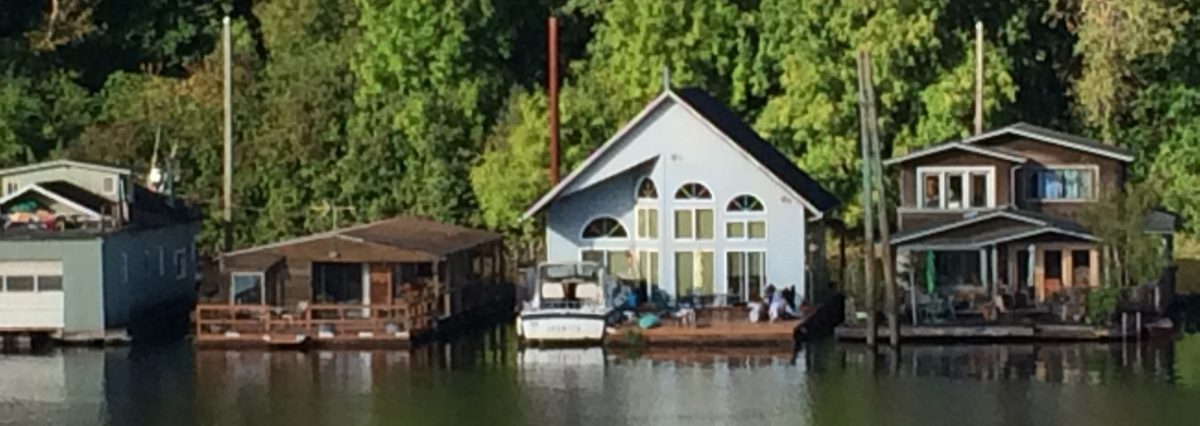Our second Marina Issues Subcommittee meeting is scheduled for this Thursday, July 12th from 9a-12p at Multifamily NW (16083 SW Upper Boones Ferry Road) in Tigard.
All Marina Issues Subcommittee meetings are important for us to attend because this is where the compromises are made by both sides so that we can reach a place of agreement between marina landlords and tenants on legislative topics. The facilitators are hoping we reach some points of agreement on Thursday to be able to report back to the larger MH Coalition next week about what we’ve accomplished with our two Marina Subcommittee meetings.
But this week’s meeting is of particular importance because marina landlords were given 2 months to organize, grow in numbers, consult attorneys, and come to a consensus about the 5 issues we raised at the last Marina Issues Subcommittee May16th meeting:
1) Bringing the FHO (Floating Home Owner) Tenant protections up to the level which current Manufactured Housing Park Tenants enjoy (the ten points on the original VanLandingham memo)
2) Addressing the Three Factors which put FHO Tenants at greater risk to potentially lose their life’s savings than other Tenants:
A. Fees (fees to move in a new slip, scarcity of affordable rental slips, some Landlords charge fees to move out and/or higher fees to new tenants coming in)
B. Evictions (legal eviction notices served for minor rule infractions)
C. The ORS Definition of a Floating Home as “Abandoned Property” (if evicted, a FHO tenant has 30-ish days to sell or move their home out of the marina or else the home becomes “Abandoned Property” and the Landlord can seize and dispose of the home without the FHO Tenants’ consent)
3) Making it mandatory for Landlords to notify current, new and prospective FHO Tenants that they have rights protected under ORS 90.505 – 830
4) Increasing the statute of limitations under ORS 90.505 – 830 to align more closely with the long-term nature of floating home slip leases
Landlords are expected to come prepared and ready to tell us what they are willing to consider.
Also of importance for this coming meeting is that we have already achieved preliminary agreement on a few items during the last meeting, but if left unprotected and unrepresented, Landlords could reverse their agreement on these issues or use them as bargaining chips to get legislation that they want to have passed – such as allowing liveaboards or RV parks at your marina and permanently relocating your home to another part of the marina at your cost by serving a 30-day notice to tenants. Here is what has been agreed to thus far by both sides, preliminarily and could be at risk:
1) Extending the time that an evicted FHO Tenant may attempt to sell their home (from 30 days to 12 months) on marina premises for evictions related to behavior.
2) Allowing FHO Tenants to pay the $10 annual assessment fee in order to fund and gain access to a free landlord-tenant dispute resolution resource that has a thorough understanding of the laws as an option to try to resolve issues in order to help avoid litigation.
3) Requiring Marina Landlords to attend mandatory continuing education to keep updated on the laws and marina tenancy issues.
We must stand up for our rights and create fair floating home owner tenant legislation.
It is always more valuable for attendees to participate in person, but if you cannot make it, the call-in number for this location – Multifamily NW: 515-604-9000, passcode 948800.
KEEP IN MIND: Our first marina meeting was very well attended, leaving standing room only. You may want to toss a camp chair into your trunk just in case we exhaust the facility’s chairs again.
Our tenant group is 50 strong now and we represent approximately 13 moorages! For those of you or your neighbors still concerned about participating, be assured that ORS 90.765 prohibits a marina Landlord from retaliatory conduct in response to a Floating Home Owner Tenant asserting or protecting their rights. AND further, ORS 90.750 grants Floating Home Owner Tenants the right to canvass at their marina or to discuss ANY matter related to floating home life with their neighbors anywhere, including in marina common areas or at your home at the marina. We have more power together.
